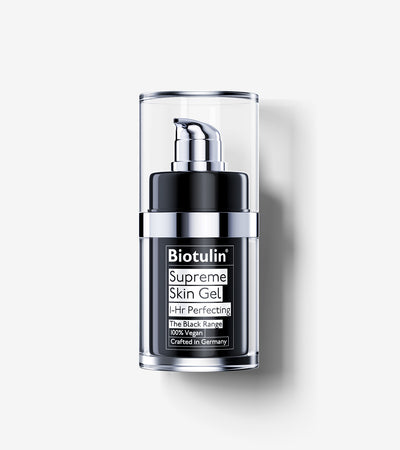Overview/Definition
Butylene glycol is an organic alcohol commonly used in skincare and cosmetic products. It is a colorless, water-soluble liquid derived from petroleum sources, though recent advancements have enabled its production from renewable resources through fermentation processes. In skincare formulations, butylene glycol serves multiple purposes, including acting as a solvent, humectant, and emollient. Its versatility and efficacy have made it a prevalent ingredient in various personal care products.
Function in Skincare
In skincare, butylene glycol performs several key functions:
- Humectant: It attracts water from the environment and helps retain moisture in the skin, enhancing hydration levels.
- Solvent: It effectively dissolves other ingredients, ensuring a uniform and stable formulation.
- Emollient: It provides a smooth and silky texture to products, aiding in application and leaving the skin feeling soft.
These properties contribute to improved skin hydration, texture, and overall product performance.
Skin Type Suitability
Butylene glycol is generally suitable for all skin types:
- Dry Skin: Its humectant properties help attract and retain moisture, alleviating dryness.
- Oily Skin: Its lightweight texture ensures it doesn't clog pores or leave a greasy residue.
- Sensitive Skin: It is typically well-tolerated, though individuals with extremely sensitive skin should perform patch tests to ensure compatibility.
While butylene glycol addresses general hydration and texture concerns, it is not specifically targeted toward issues like acne, aging, or hyperpigmentation.
Benefits
Butylene glycol offers several benefits in skincare formulations:
- Enhanced Hydration: As a humectant, it draws moisture into the skin, improving hydration levels.
- Improved Product Texture: It contributes to a smoother, more spreadable consistency in creams and lotions.
- Increased Ingredient Efficacy: By acting as a solvent, it helps dissolve active ingredients, enhancing their delivery and effectiveness.
Scientific studies have indicated that humectants like butylene glycol can significantly improve skin hydration and barrier function. For instance, a study published in the Journal of Cosmetic Dermatology found that humectants, including butylene glycol, increased skin hydration and reduced transepidermal water loss over an eight-hour period. (Source)
Potential Side Effects or Risks
Butylene glycol is generally considered safe for topical use. However, potential side effects include:
- Skin Irritation: Some individuals, particularly those with sensitive skin, may experience mild irritation or redness.
- Allergic Reactions: Although rare, allergic contact dermatitis has been reported. A patch test is recommended before widespread use. (Source)
It is advisable for pregnant or breastfeeding individuals to consult with a healthcare professional before using products containing butylene glycol, as research on its safety in these populations is limited.
Usage in Skincare Products
Butylene glycol is commonly found in various skincare products, including:
- Moisturizers
- Serums
- Cleansers
- Sunscreens
- Sheet Masks
Its concentration in formulations typically ranges from 1% to 10%, depending on the desired effect and product type.
How It’s Used
To incorporate products containing butylene glycol into your skincare routine:
- Application: Apply as directed, usually after cleansing and before heavier creams or sunscreens.
- Frequency: Most products are designed for daily use; follow the manufacturer's instructions.
- Complementary Ingredients: Butylene glycol works well alongside other hydrating agents like glycerin and hyaluronic acid.
Always perform a patch test when introducing new products to ensure compatibility with your skin.
Scientific Studies/Research
Research indicates that butylene glycol is effective in enhancing skin hydration. A study in the Journal of Cosmetic Dermatology demonstrated that humectants, including butylene glycol, significantly improved skin hydration and reduced transepidermal water loss. (Source)
Other Names/Synonyms
Butylene glycol may also be listed as:
- 1,3-Butanediol
- 1,3-Butylene glycol
- Butane-1,3-diol
Sustainability/Environmental Impact
Traditionally, butylene glycol is derived from petroleum sources. However, sustainable alternatives have been developed. For example, Genomatica has created a biobased version called Brontide™, produced through the fermentation of renewable sugars, reducing greenhouse gas emissions and reliance on fossil fuels. (Source)
Fun Facts (Optional)
Butylene glycol is not only used in cosmetics but also serves as a solvent in various industries, including pharmaceuticals and food production. Its versatility extends beyond skincare, highlighting its importance in multiple fields.


